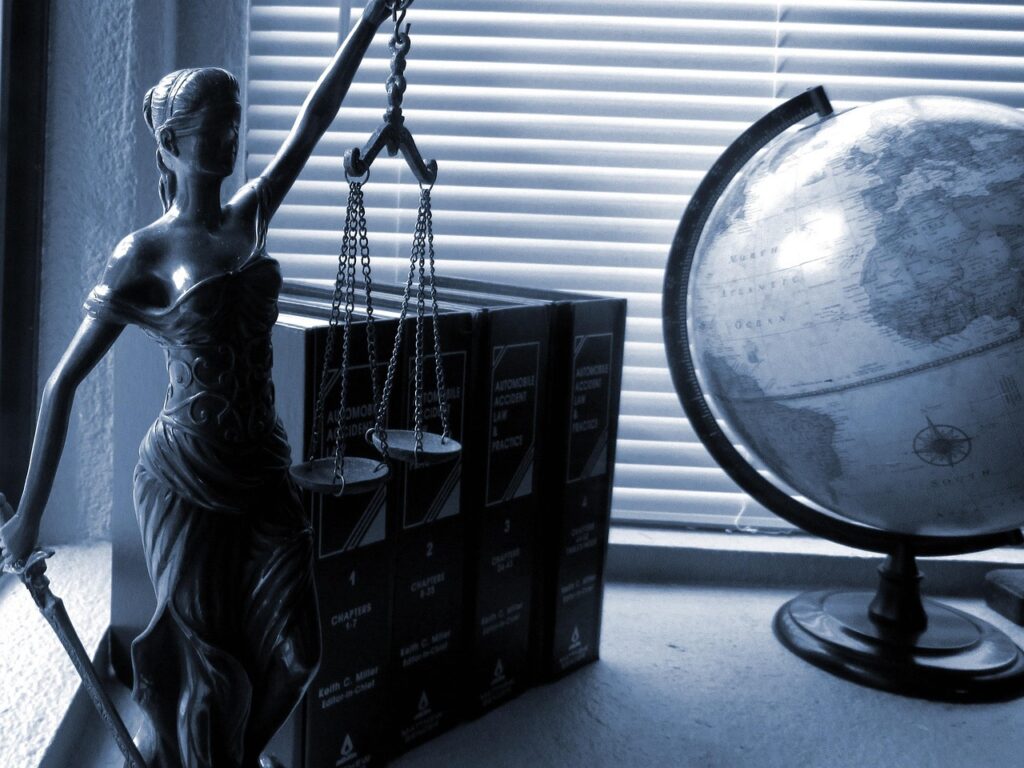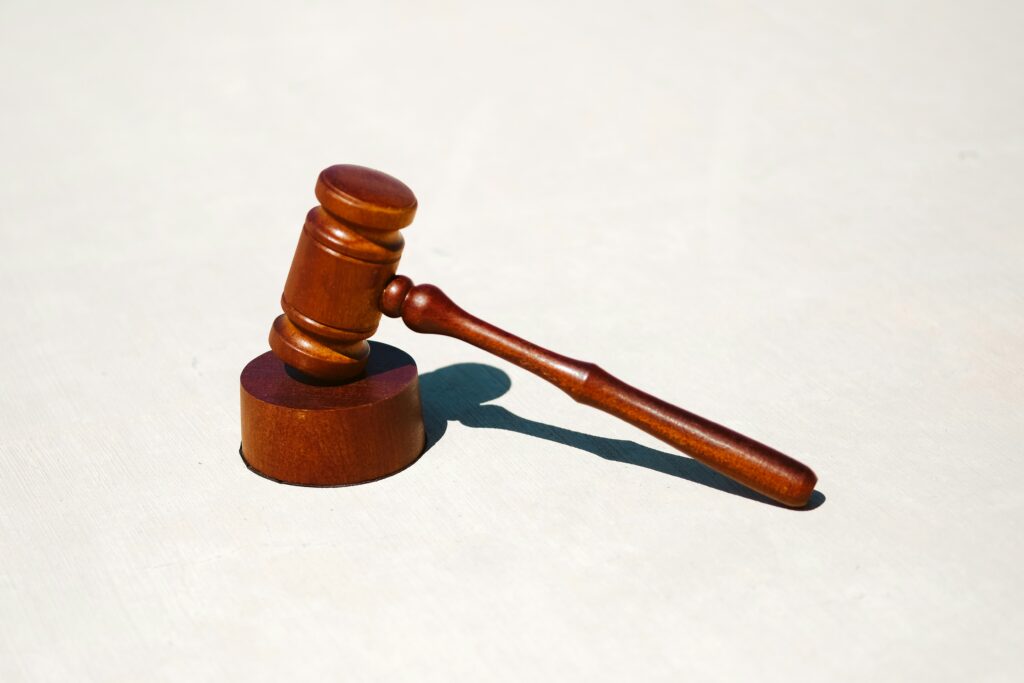Published On: October 4th 2025
Authored By: Moveeka K
Government Law College, Coimbatore (Affiliated to TNDALU)
Abstract
The growth of digital technologies and the internet’s central place in global life has put digital sovereignty and global internet freedom in direct, conflict and often countervailing. This paper offers a critical analysis of the legal, political, and ethical issues involved as sovereign states enforce greater control over digital technologies and cyberspace, disrupting the vision of an open and borderless internet. Through an examination of fundamental legal principles, case studies, contemporary policy trends, and new international frameworks, the study attempts to identify essential conflicts and opens space to reconcile state interests with the need to maintain global digital freedoms.
Introduction
Over the past three decades, the internet has evolved from a techno-utopian, borderless commons into an arena for national assertion and geopolitical contest. Digital Sovereignty is a notion that states should govern cyberspace within their territories. This notion often collides with the ideals of global internet freedom, which are rooted in openness, interoperability and universal human rights. These agendas appeal to both legitimate principles and are fundamentally opposed in their legal, technological and ideological global foundations. This resulting ‘Conflict of laws in Cyberspace’ challenges the existing international legal doctrines related to the Cyber laws and looms to fragment the International Digital Ecosystem.
DEFINING DIGITAL SOVEREIGNTY AND GLOBAL INTERNET FREEDOM
Digital sovereignty encompasses a state’s capacity to regulate its digital infrastructure, oversee data flows, control technological positioning, and maintain cybersecurity within its borders. Proponents stress national security, economic self-determination, and cultural protection: in this logic, data localization laws, specialized national standards, and mandatory surveillance capabilities are all instruments of sovereignty.[1]
Global internet freedom, in contrast, champions seamless cross-border data flows, universal access, and the right to receive and impart information regardless of national frontiers—a principle enshrined in Article 19 of the Universal Declaration of Human Rights. This vision is supported by transnational policy actors, many civil society organizations, and large parts of the tech industry, all of which rely on the multi-stakeholder model of internet governance rather than state-centric regulation.[2]
The conceptual divide is further sharpened by geopolitical and ideological lines: whereas China and Russia promote robust digital sovereignty to shield political and cultural systems, North America and parts of Europe (notwithstanding rising legislative intervention) have historically advocated for openness. Yet, recent European Union policy also frames digital sovereignty as essential to achieving “Strategic Autonomy,” complicating traditional alignments.[3]
International Legal Foundations and Doctrinal Challenges
International law has struggled to adapt traditional doctrines of territorial sovereignty to the digital realm. Most scholars and states agree that sovereignty applies in cyberspace, as affirmed in the Tallinn Manual 2.0 and by United Nations reports. However, the technical architecture of the internet, composed of globally distributed networks, creates overlapping jurisdictions and complicates conventional notions of state authority.[4]
The prevailing “Territorial sovereignty” account suggests that states possess regulatory and enforcement power over digital infrastructure and activities occurring within their physical borders. Yet the borderless nature of data, the decentralized location of servers, and the capacities for anonymization and transnational activity undermine this framework.[5]
Some legal theorists suggest a layered approach, drawing analogy to the law of the sea: state sovereignty is strongest closest to its “Digital Shores” (domestic infrastructure) and weakens as one move into the “High Seas” of global cyber activity, granting residual digital freedoms to others. This would rein in excessive state control while still enabling legitimate regulation and security[6].
Digital Sovereignty in Practice: Case Studies
- CHINA
China presents the most comprehensive model of digital sovereignty, or “cyber sovereignty.” The state enforces strict content censorship (“Great Firewall”), mandates data localization, and sets standards for hardware and software to enable state control. The legal infrastructure is openly designed to defend national security, cultural integrity, and public order—even in defiance of international free speech or privacy norms.[7]
- RUSSIA
Since 2011, Russia has embarked on a program of “Internet Sovereignization” Legislation that allows the state to centralize internet traffic, disconnect from the global web, and restrict foreign platforms. These efforts, justified as security measures, also serve to suppress political dissent and transborder information flows.[8]
- INDIA
India’s approach blends digital sovereignty aspirations with democratic rhetoric. Policy is shaped by national security imperatives and developmental goals, resulting in periodic internet shutdowns, increased data localization requirements, and stricter platform regulation, especially regarding foreign companies.[9]
- EUROPEAN UNION
The EU’s “Digital sovereignty” drive seeks to secure strategic autonomy while protecting citizens’ rights, exemplified by the General Data Protection Regulation (GDPR), the Digital Markets Act (DMA), and the Digital Services Act (DSA). These measures have extraterritorial reach, creating global ripple effects.[10]
Fragmentation and the Challenge to Internet Freedom
Assertive digital sovereignty often leads to internet fragmentation, a process dubbed the “Balkanization” of cyberspace. Strict national controls on data, content, standards, and technological supply chains threaten the original vision of a unified, interoperable global network.[11]
Fragmentation means:
- Inconsistent regulatory standards that undermine transnational operations (e.g., GDPR’s extra-territoriality).
- Barriers to free expression and access to information, particularly in authoritarian states.
- Reduced cross-border data flows, harming innovation and economic integration.
- Localized internets vulnerable to overreach, surveillance, and isolation from the global digital commons.
This proliferation of “Digital Borders” risks undermining the internet’s value as a global resource for knowledge, economic growth, and civic engagement.[12]
Conflict of Laws in Cyberspace: Jurisdictional Dilemmas
Cross-border online activity often triggers direct legal conflicts between states. For example, a social media post accessible in multiple countries may violate one nation’s speech laws while being protected elsewhere. Data or infrastructure located abroad but used domestically can place firms at odds with foreign laws (e.g., data localization vs. cloud storage). Cyberattacks frequently involve perpetrators, infrastructure, and victims in different legal systems, complicating attribution and prosecution.
Mechanisms for conflict resolution (mutual legal assistance treaties, international treaties, and harmonization efforts) lag far behind technological change. Where international agreement is lacking, states increasingly assert unilateral jurisdiction, escalating disputes and introducing legal uncertainty.[13]
Emerging Models and Scholarly Proposals
- Layered Sovereignty (Law of the Sea Analogy): States exercise the greatest control over local infrastructure and users, but as digital actions move beyond clear borders, rights and freedoms guaranteed under international law assume greater importance. This weakens arguments for pervasive state control and supports an “internet commons” subject to shared rights and responsibilities.[14]
- Global Constitutionalism: Embedding core rights (freedom of expression, privacy) directly into the architecture of internet governance, enforced by multilayered institutions rather than national governments alone.[15]
- Multi-stakeholder Governance: Expanding the authority and legitimacy of organizations such as ICANN and the Internet Governance Forum to manage cross-border internet issues, balancing state, civil society, and private sector roles.[16]
Toward Reconciliation: Prospects and Risks
- Efforts to reconcile digital sovereignty with global internet freedom face substantial obstacles. Geopolitical competition (notably the U.S.–China technology rivalry) incentivizes greater assertion of digital sovereignty. Technical trends toward localization and fragmentation reinforce legal and policy divides
- Yet global challenges like cybersecurity, misinformation, and transnational crime require cooperation and minimum standards for rights protection and interoperability.[17]
Pathways forward include:
- Negotiation of new cyber norms within the United Nations and other international forums.[18]
- Expansion of digital trade and data agreements emphasize shared commitments to openness and rights.
- Strengthened regional and global institutions to arbitrate cross-border disputes and harmonize key standards.
Failure to bridge these approaches risks a digital world divided by hard borders.
Conclusion
The contest between digital sovereignty and global internet freedom reflects deep tensions between legitimate state interests and the universal aspirations of the internet revolution. While sovereignty provides order, security, and self-determination, excessive assertion fragments the global network, erodes rights, and undermines international law. A sustainable digital order requires frameworks that balance sovereign concerns with the preservation of a global, interoperable, and rights-respecting internet. Achieving this balance demands legal innovation and international cooperation.
REFERENCES
- Radu, R.,‘Fragmenting Internet Governance: Digital Sovereignty and Global Constitutionalism’, MediaLaws, (Aug. 7, 2025, 11:46 AM), https://www.medialaws.eu/fragmenting-internet-governance-digital-sovereignty-and-global-constitutionalism/.
- Thumfart, J. (2025) ‘Digital Sovereignty in China, Russia and India’ pp. 39–102, (Min Jiang and Luca Belli), Digital Sovereignty in the BRICS Countries: How the Global South and Emerging Power Alliances Are Reshaping Digital Governance, Cambridge: Cambridge University Press (Aug. 7, 2025, 11:35 AM), https://www.cambridge.org/core/books/digital-sovereignty-in-the-brics-countries/digital-sovereignty-in-china-russia-and-india/F8AFD22D8DF5486B3BC4B0B128454ADE
- Pohle, J. & Thiel, T. (2020). Digital sovereignty. Internet Policy Review, (Aug. 7, 2025, 11:35 AM), https://policyreview.info/concepts/digital-sovereignty.
- Vivek Krishnamurthy, ‘Anchoring Digital Sovereignty’ — reproduced exactly from the Chicago Unbound entry, 25(2) Chicago Journal of International Law (Feb. 13, 2025), at 419, 419 https://chicagounbound.uchicago.edu/cgi/viewcontent.cgi?article=1864&context=cjil.
- Jiang, M. (2024) ‘Models of State Digital Sovereignty From the Global South: Diverging Experiences From China, India and South Africa’, 16(4), Policy & Internet, pp. 727–738. doi:10.1002/poi3.427, https://onlinelibrary.wiley.com/doi/full/10.1002/poi3.427.
- Musoni, M., Karkare, P., Teevan, C. & Domingo, E. (2023) Global approaches to digital sovereignty: Competing definitions and contrasting policy. Discussion Paper No. 344. Maastricht: ECDPM. (Aug. 7, 2025, 12:01 PM), https://ecdpm.org/application/files/7816/8485/0476/Global-approaches-digital-sovereignty-competing-definitions-contrasting-policy-ECDPM-Discussion-Paper-344-2023.pdf.
[1] Pohle, J. & Thiel, T. (2020). Digital sovereignty. Internet Policy Review, (Aug. 7, 2025, 11:35 AM), https://policyreview.info/concepts/digital-sovereignty.
[2] Thumfart, J. (2025) ‘Digital Sovereignty in China, Russia and India’ pp. 39–102, (Min Jiang and Luca Belli), Digital Sovereignty in the BRICS Countries: How the Global South and Emerging Power Alliances Are Reshaping Digital Governance, Cambridge: Cambridge University Press (Aug. 7, 2025, 11:35 AM), https://www.cambridge.org/core/books/digital-sovereignty-in-the-brics-countries/digital-sovereignty-in-china-russia-and-india/F8AFD22D8DF5486B3BC4B0B128454ADE; Radu, R.,‘Fragmenting Internet Governance: Digital Sovereignty and Global Constitutionalism’, MediaLaws, (Aug. 7, 2025, 11:46 AM), https://www.medialaws.eu/fragmenting-internet-governance-digital-sovereignty-and-global-constitutionalism/.
[3] Pohle, J. & Thiel, T. (2020). Digital sovereignty. Internet Policy Review, (Aug. 7, 2025, 11:35 AM), https://policyreview.info/concepts/digital-sovereignty; Thumfart, J. (2025) ‘Digital Sovereignty in China, Russia and India’ pp. 39–102, (Min Jiang and Luca Belli), Digital Sovereignty in the BRICS Countries: How the Global South and Emerging Power Alliances Are Reshaping Digital Governance, Cambridge: Cambridge University Press (Aug. 7, 2025, 11:35 AM), https://www.cambridge.org/core/books/digital-sovereignty-in-the-brics-countries/digital-sovereignty-in-china-russia-and-india/F8AFD22D8DF5486B3BC4B0B128454ADE.
[4] Vivek Krishnamurthy, ‘Anchoring Digital Sovereignty’ — reproduced exactly from the Chicago Unbound entry, 25(2) Chicago Journal of International Law, 2-13-2025, at 419, 419 https://chicagounbound.uchicago.edu/cgi/viewcontent.cgi?article=1864&context=cjil.
[5] Vivek Krishnamurthy, ‘Anchoring Digital Sovereignty’ — reproduced exactly from the Chicago Unbound entry, 25(2) Chicago Journal of International Law, 2-13-2025, at 419, 419 https://chicagounbound.uchicago.edu/cgi/viewcontent.cgi?article=1864&context=cjil.
[6] Vivek Krishnamurthy, ‘Anchoring Digital Sovereignty’ — reproduced exactly from the Chicago Unbound entry, 25(2) Chicago Journal of International Law, 2-13-2025, at 419, 419 https://chicagounbound.uchicago.edu/cgi/viewcontent.cgi?article=1864&context=cjil.
[7] Thumfart, J. (2025) ‘Digital Sovereignty in China, Russia and India’ pp. 39–102, (Min Jiang and Luca Belli), Digital Sovereignty in the BRICS Countries: How the Global South and Emerging Power Alliances Are Reshaping Digital Governance, Cambridge: Cambridge University Press (Aug. 7, 2025, 11:35 AM), https://www.cambridge.org/core/books/digital-sovereignty-in-the-brics-countries/digital-sovereignty-in-china-russia-and-india/F8AFD22D8DF5486B3BC4B0B128454ADE; Musoni, M., Karkare, P., Teevan, C. & Domingo, E. (2023) Global approaches to digital sovereignty: Competing definitions and contrasting policy. Discussion Paper No. 344. Maastricht: ECDPM. (Aug. 7, 2025, 12:01 PM), https://ecdpm.org/application/files/7816/8485/0476/Global-approaches-digital-sovereignty-competing-definitions-contrasting-policy-ECDPM-Discussion-Paper-344-2023.pdf.
[8] Thumfart, J. (2025) ‘Digital Sovereignty in China, Russia and India’ pp. 39–102, (Min Jiang and Luca Belli), Digital Sovereignty in the BRICS Countries: How the Global South and Emerging Power Alliances Are Reshaping Digital Governance, Cambridge: Cambridge University Press (Aug. 7, 2025, 11:35 AM), https://www.cambridge.org/core/books/digital-sovereignty-in-the-brics-countries/digital-sovereignty-in-china-russia-and-india/F8AFD22D8DF5486B3BC4B0B128454ADE.
[9] Thumfart, J. (2025) ‘Digital Sovereignty in China, Russia and India’ pp. 39–102, (Min Jiang and Luca Belli), Digital Sovereignty in the BRICS Countries: How the Global South and Emerging Power Alliances Are Reshaping Digital Governance, Cambridge: Cambridge University Press (Aug. 7, 2025, 11:35 AM), https://www.cambridge.org/core/books/digital-sovereignty-in-the-brics-countries/digital-sovereignty-in-china-russia-and-india/F8AFD22D8DF5486B3BC4B0B128454ADE; Jiang, M. (2024) ‘Models of State Digital Sovereignty From the Global South: Diverging Experiences From China, India and South Africa’, 16(4), Policy & Internet, pp. 727–738. doi:10.1002/poi 3.427, https://onlinelibrary.wiley.com/doi/full/10.1002/poi3.427.
[10] Pohle, J. & Thiel, T. (2020). Digital sovereignty. Internet Policy Review, (Aug. 7, 2025, 11:35 AM), https://policyreview.info/concepts/digital-sovereignty.
[11] Vivek Krishnamurthy, ‘Anchoring Digital Sovereignty’ — reproduced exactly from the Chicago Unbound entry, 25(2) Chicago Journal of International Law, (Feb. 13, 2025), at 419, 419 https://chicagounbound.uchicago.edu/cgi/viewcontent.cgi?article=1864&context=cjil; Radu, R.,‘Fragmenting Internet Governance: Digital Sovereignty and Global Constitutionalism’, MediaLaws, (Aug. 7, 2025, 11:46 AM), https://www.medialaws.eu/fragmenting-internet-governance-digital-sovereignty-and-global-constitutionalism/.
[12] Pohle, J. & Thiel, T. (2020). Digital sovereignty. Internet Policy Review, (Aug. 7, 2025, 11:35 AM), https://policyreview.info/concepts/digital-sovereignty; Radu R.,‘Fragmenting Internet Governance: Digital Sovereignty and Global Constitutionalism’, MediaLaws, (Aug. 7, 2025, 11:46 AM), https://www.medialaws.eu/fragmenting-internet-governance-digital-sovereignty-and-global-constitutionalism/.
[13] Vivek Krishnamurthy, ‘Anchoring Digital Sovereignty’ — reproduced exactly from the Chicago Unbound entry, 25(2) Chicago Journal of International Law, (Feb. 13, 2025), at 419, 419 https://chicagounbound.uchicago.edu/cgi/viewcontent.cgi?article=1864&context=cjil.
[14] Vivek Krishnamurthy, ‘Anchoring Digital Sovereignty’ — reproduced exactly from the Chicago Unbound entry, 25(2) Chicago Journal of International Law, (Feb. 13, 2025), at 419, 419 https://chicagounbound.uchicago.edu/cgi/viewcontent.cgi?article=1864&context=cjil.
[15] Radu, R.,‘Fragmenting Internet Governance: Digital Sovereignty and Global Constitutionalism’, MediaLaws, (Aug. 7, 2025, 11:46 AM), https://www.medialaws.eu/fragmenting-internet-governance-digital-sovereignty-and-global-constitutionalism/.
[16] Radu, R.,‘Fragmenting Internet Governance: Digital Sovereignty and Global Constitutionalism’, MediaLaws, (Aug. 7, 2025, 11:46 AM), https://www.medialaws.eu/fragmenting-internet-governance-digital-sovereignty-and-global-constitutionalism/.
[17] Pohle, J. & Thiel, T. (2020). Digital sovereignty. Internet Policy Review, (Aug. 7, 2025, 11:35 AM), https://policyreview.info/concepts/digital-sovereignty; Vivek Krishnamurthy, ‘Anchoring Digital Sovereignty’ — reproduced exactly from the Chicago Unbound entry, 25(2) Chicago Journal of International Law (Feb. 13, 2025), at 419, 419 https://chicagounbound.uchicago.edu/cgi/viewcontent.cgi?article=1864&context=cjil.
[18] Vivek Krishnamurthy, ‘Anchoring Digital Sovereignty’ — reproduced exactly from the Chicago Unbound entry, 25(2) Chicago Journal of International Law (Feb. 13, 2025), at 419, 419 https://chicagounbound.uchicago.edu/cgi/viewcontent.cgi?article=1864&context=cjil.




